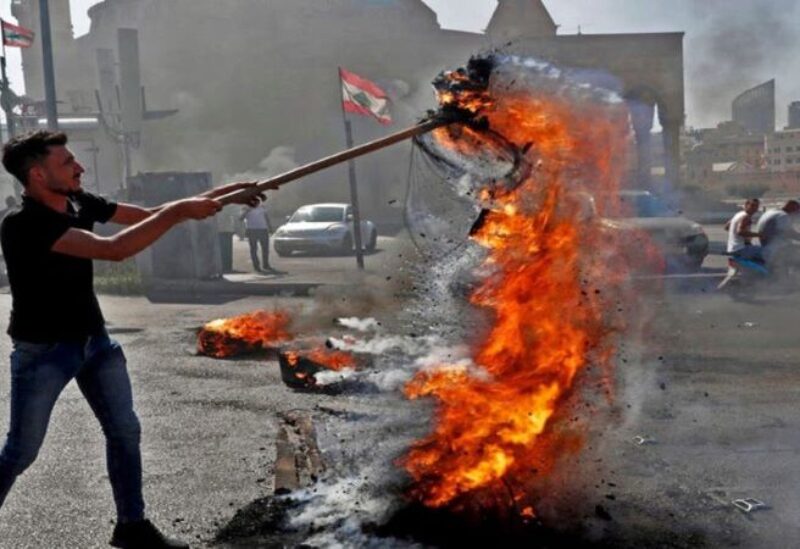
Protests in Lebanon
According to a poll, 63% of Lebanese individuals wish to leave the country permanently as the country’s economy continues to deteriorate.
The most recent figures came two years after the country experienced a financial catastrophe. Since 2019, the price of essential products has risen, while the value of the local currency has fallen by more than 90%.
The Lebanese pound fell against the dollar last week, to above 25,000, from a low of 1,500 in 2019.
According to a Gallup poll of 1,000 Lebanese people taken in August and released on Thursday, Canada and Germany are the most desired destinations for individuals looking to leave – 28% want to migrate to Canada, while 19% want to move to Germany.
The statistics represent a significant rise from the 19-32 percent who expressed a wish to leave in the 12 years since Gallup began asking the question.
An explosion that killed over 200 people last year, regular power outages, and a health-care system in disarray created by Covid-19 have prompted a brain drain as individuals seek better opportunities overseas.
Since Prime Minister Najib Mikati’s cabinet was created in September after more than a year of political gridlock that exacerbated the crisis, there has been no progress.
Mikati’s administration has been paralyzed since a disagreement over the inquiry into the Beirut port bombing in August 2020 erupted during a Cabinet meeting on October 12. Since then, the Cabinet has not met.
A helicopter drops water on fires that civil defense officials describe as “90 percent under control” after a 24-hour fight to destroy them before they threaten homes. Elizabeth Fitt took all of the images.
Subsidies on practically all items, including gasoline and medication, have been reduced, causing prices to rise as fundamental services, such as health care, have crumbled.
According to the study, 85% of individuals believe it’s “tough” or “very difficult” to exist on their salary, with 62% saying it’s “extremely difficult.” The number of individuals who find it extremely tough has nearly doubled since 2019, when it was 32%.
Last month, the UN’s poverty envoy chastised Lebanon’s lawmakers for failing the people. It is estimated that more than 80% of the population lives below the poverty level.
“I saw images in Lebanon that I never expected I’d see in a middle-income nation,” said UN Special Rapporteur on Extreme Poverty Olivier De Schutter.
“The government’s delay in the face of an extraordinary disaster has caused immense suffering among the people.”
The country’s problems are also causing a mental health crisis, with more than half of those polled reporting extreme sadness (56 per cent).